The Ned has London's best blackout curtains. 🇬🇧
Joe Weisenthal's travel diary, made possible by sausage rolls.
This week, I’m 90% offline because I’m on my honeymoon. Instead of going dark, I handed the keys to Feed Me over to a few friends, kind of like when Johnny Carson would let Jay Leno fill in for him. The newsletters and comments will be available to all readers this week.
Hello Feed Me readers. You may remember me from a recent Guest Lecture here in the newsletter. But if not, that's fine. Most of the time I'm co-hosting Bloomberg's Odd Lots podcast, and writing a daily newsletter along with Tracy Alloway. Normally we talk about a wide range of things related to markets, finance, and economics, though these days we pretty much just talk about the tariffs (more on that in a second).
With Emily off this week, I have the honor of filling in for a day, which is a great thrill, though I feel some imposter syndrome. I know very little about restaurants or brands or really much else of Emily's stock and trade. I'm 44, and have two kids, and have very little time to do new things.
“Wherever you go, order the sausage roll.”
That being said, I just came back from a week in London, so I can actually offer up a few recommendations.
Brigadiers. When my friends saw that I was in London, a few of them told me that I had to try the Indian restaurant Gymkhana. I didn't make it. But I did go to Gymkhana's sister restaurant Brigadiers, which happens to be a 30-second walk from the Bloomberg offices. Here's a place that actually lives up to the hype. I got scallops, short-ribs, a saag dish, and some guinea foul sausages. All of it's delicious. Also the Masala Cola (various spices and lime in Thums Up soda) was one of the more refreshing drinks I can remember.
The Ned. I'm very lazy, so I stayed at The Ned hotel, which is just a 90-second walk from the office. There's honestly too much to say about this hotel. The bars. The buffets. The pool. The bands that are playing basically all day in the lobby. I'm sure thousands of words have been written about it elsewhere, so I don't need to repeat all of it. The one thing that I can say, definitively, is that they have the best blackout curtains of any hotel I've ever stayed in. Most blackout curtains let in a little bit of light. These did not. I got into my room around 11PM and slept straight through until almost 1:30 the next afternoon.
Here's a photo of when I felt very sophisticated reading the papers over coffee in Millie's Lounge, one of the restaurants in the hotel's lobby.
The Lucky Cat. Gordon Ramsay has a new "Asian-inspired" cocktail bar/restaurant at Bishopsgate. I don't have any opinion on the cocktails, but the view of London from the 60th floor of the building is incredible.
The Devonshire/The Old Bank of England. I don't know how one would even begin to rank the pubs of London. There's just so many of them. But at The Devonshire I had a great Scotch egg and sausage roll, and I had two sausage rolls at the Old Bank of England pub. People were making fun of me for coming to London, and then eating random fried meat things in bars, but to my mind that's like the one thing that I don't normally see on the menu in New York City. Wherever you go, order the sausage roll.
The Imperial War Museum. Now that I'm in my 40s, by law, I've gotten into WWII history. If you're into that sort of thing, I highly recommend checking this place out. It's free, and when I went on a Sunday, it wasn't very crowded. Looking at all the old tanks and planes and submarines, it really drives home how important steel production is in war.
As mentioned above, the main thing on my mind these days is the tariffs, and in particular the hardening trade war with China. I thought Emily’s April 7 newsletter, on how various brands are going to handle the tariffs, was one of the most interesting things I've read on the subject.
As far as I'm concerned, the severing of economic relations with China could be a big story for the rest of all of our lives. The trade war started under the first Trump administration, and was escalated during the Biden administration, and is now being escalated yet again. The existential angst over material dependence on Chinese manufactured goods seems to be the one thing that resonates within both of the two major parties. So it's hard to imagine any imminent re-integration between the world's two biggest economies in the years ahead.
“Looking at all the old tanks and planes and submarines, it really drives home how important steel production is in war.”
I already said this in my Guest Lecture from last month, but it's really not a crime to pick up a book from time to time. Actually it's probably good to read, if only because it forces you to put down your phone for long stretches of time. Plus you might actually learn something that's useful in a conversation.
So here are a few books on China I've read in recent years, which have probably helped me have a marginally better understanding of the situation than the average yapper. I mean, to be clear, I'm a neophyte, but, you know, I'm trying.
On Xi Jinping. Kevin Rudd is the former Prime Minister of Australia, and when I saw he had written a book on Xi Jinping, I figured that it was just going to be some kind of first-person insights from having dealt with him diplomatically. Nope, not at all. It turns out that Rudd, after serving as PM, went and got his PhD in China studies at Oxford, and then wrote a massive book on what Xi Jinping Thought actually is. Extremely, impressive, thorough work.
Made in China. In my mind, I sort of had this idea that after Mao died, China started opening up, and then entrepreneurs got the idea of importing cheap goods from there. Nope. It turns out that that all started much earlier. Elizabeth O'Brien Ingleson traces the history of this trade, which really dates back to the middle of the last century.
From Click to Boom. Speaking of Chinese commerce, the development of the online retail industry there (including giants like JD.com or Alibaba) is an incredible story. Highly recommend Lizhi Liu's book on how online shopping helped remake the Chinese economy.
The Great Transformation. Of all the books I've read on China, this is probably the one I devoured most ferociously. I actually went into the office late on a Friday night to pick it up, when I heard that a review copy landed on my desk. The authors Odd Arne Westad and Chen Jian look at the reality of China's economic "opening up" and find that the story is much less clean cut than most people believe, with much of it having happened during the Mao era. For example Midea, a huge publicly-traded maker of appliances (like air conditioners) was founded in 1967, during the depths of The Cultural Revolution.
Big thanks to Emily for letting me sound off. I'd love to hear in the chat what you're reading these days, or how you're getting information on what's happening in the news. In my 16 or so years of being a journalist, I don't think I've ever experienced a period of this much confusion. Everyone's just constantly asking everyone else for shreds of insight, and for the most part, everyone is as equally confused about what comes next. So what are you finding to be actually useful out there? Tell me!


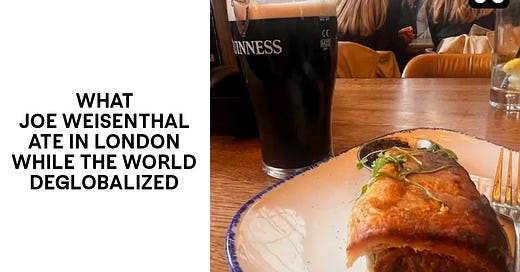


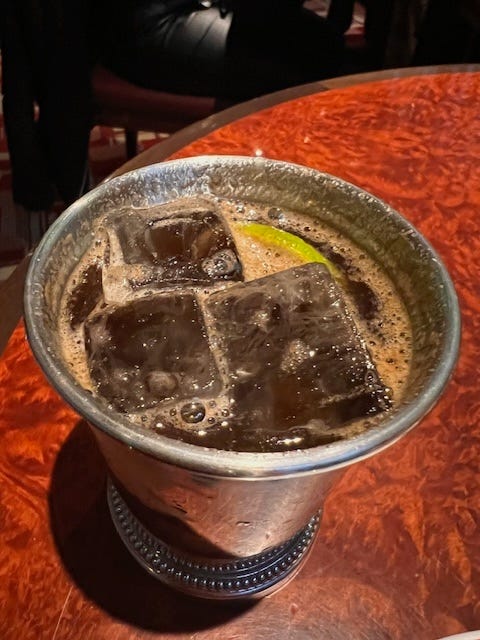
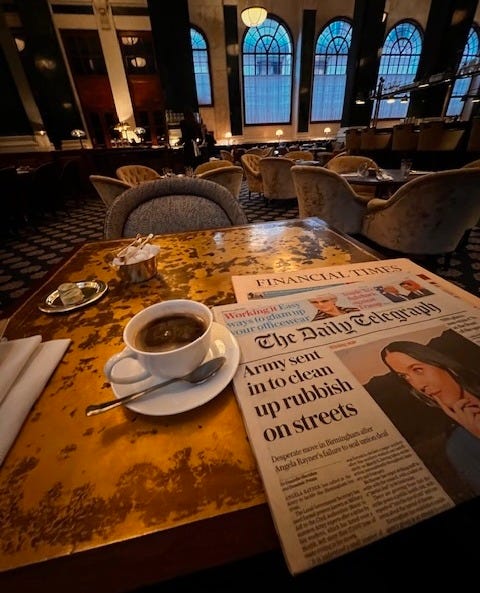
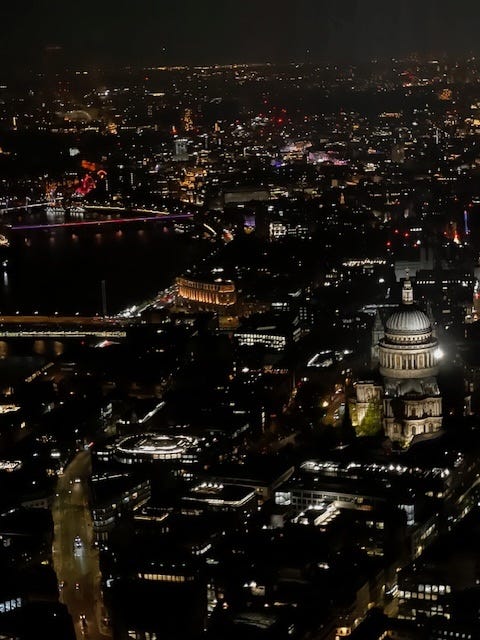
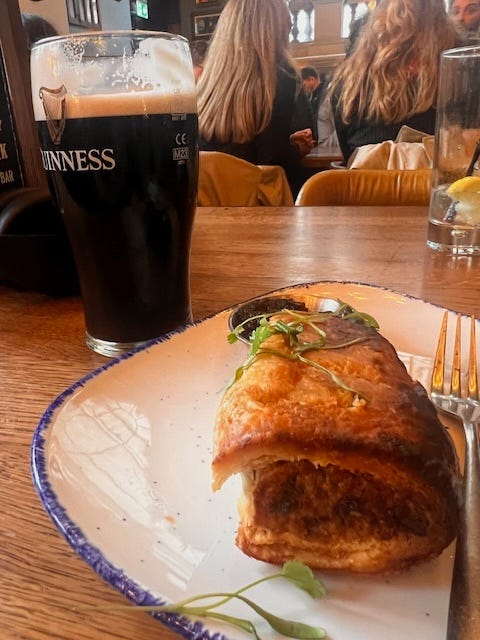
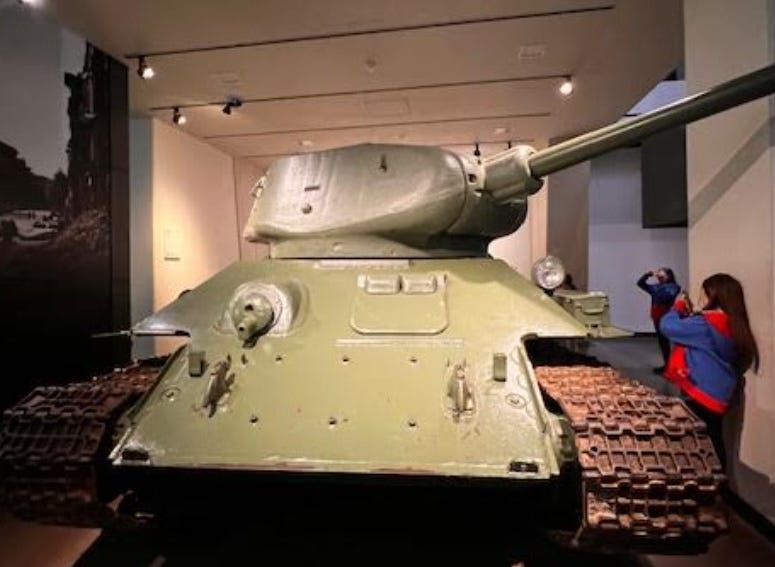

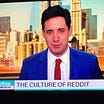
Thank you Joe
- sent from Terminal 5 Starbucks
Great job, Joe! I felt like you did a great job of mirroring Emily's cadence with funny, real commentary balanced with specialized observations.